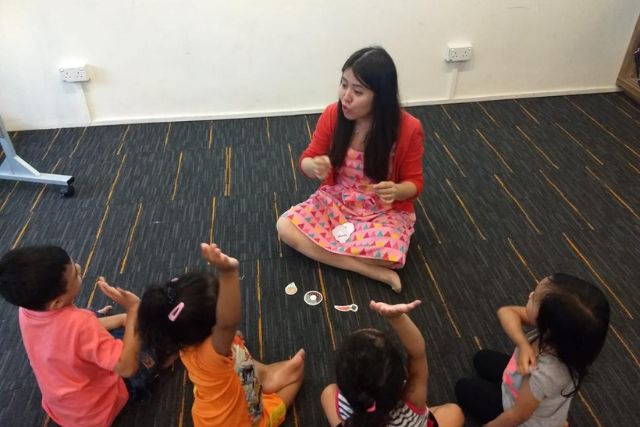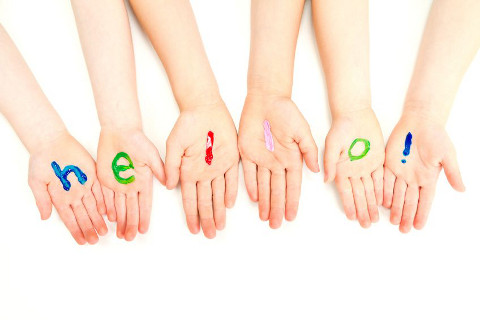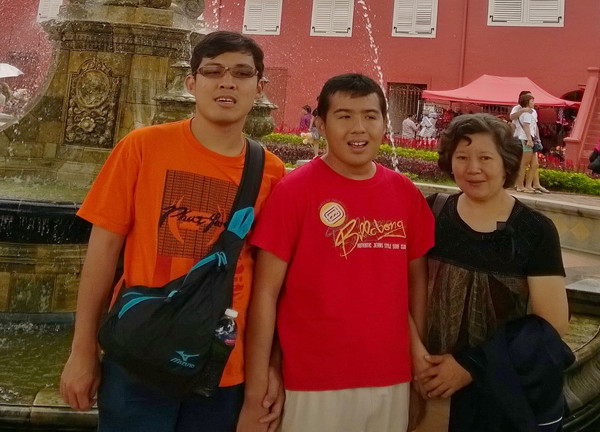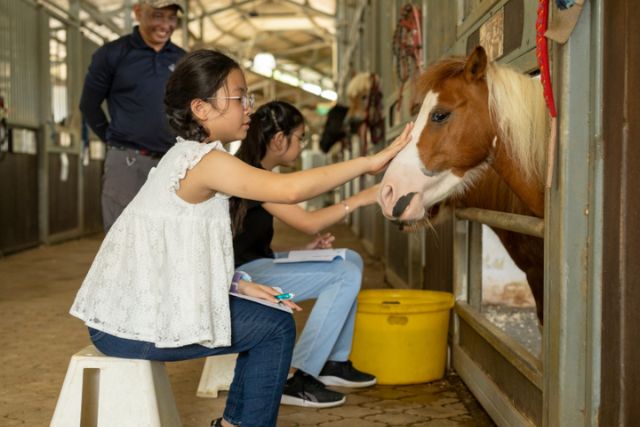The journey of nurturing a child with special needs definitely introduces a level of love that few would be able to understand and embrace. Sid Hamid speaks to mother Rilvia Len, about her journey with her 6-year-old son Raphael, who has autism.
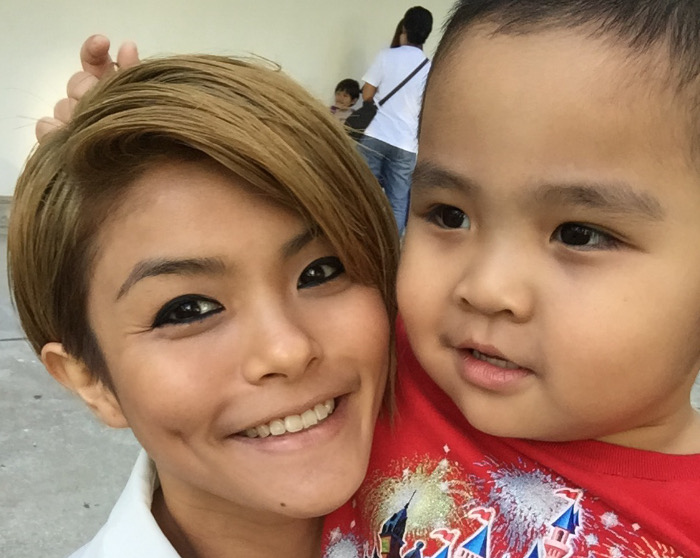
How did you figure out that Raphael was a child with autism?
At first, I realized that he was different from other kids as he does not have any eye contact with us or when we call his name, he does not answer us at all. This was when he was one.
At 1.5 years old, we brought him to our paediatrician to check and she referred us to the Child Developmental Unit (CDU) and from there, we followed up with the psychologist. Then, we couldn’t do a diagnostic assessment but we told her about the symptoms and they suspected that he has autism.
At the age of 3, we did the IQ assessment and a month later, we got the report. We were very anxious then because we did not know what to do and what his future path would be like. Autism was really new to me at that time and we have been reading a lot of websites, searching for research that could help him.
After he was diagnosed, we enrolled him in an Early Intervention Programme for Infants & Children (EIPIC) school. From there, I started my special journey with him.
What were the struggles and challenges that you had to face in your life after he was diagnosed with Autism?
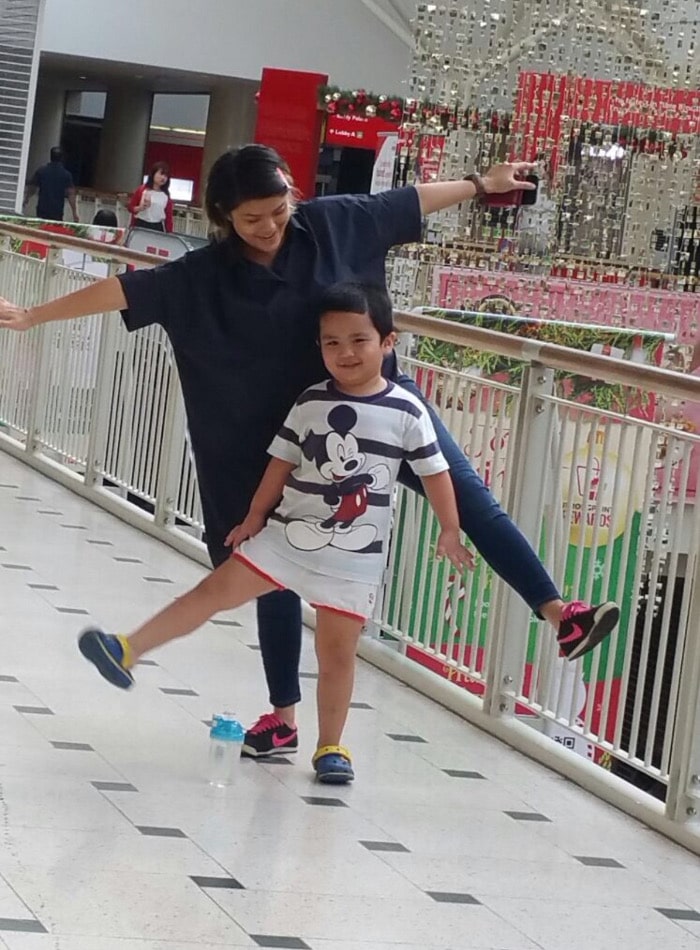
It was sad to say that some of my family members cannot take it and they also thought it was my fault. This family issue was the most challenging because they did not understand and have said many bad things about Raphael and me. It has taken me a few years to go overcome this. With the help of professionals such as teachers and CDU psychologists and some parents from the EIPIC centre, they helped and taught me a lot about what to do, where to start and ensured that I did not waste money on other resources.
At 3, I started to do private occupational therapy (OT) and speech-language therapy (SLT) as he only received once a month and once a fortnight session respectively back at his school. His improvement was very slow and since I was still working then, I was stressed out because I had to take care of him as well.
I totally had no patience with him. I got very, very tired and screamed at him most of the time. I did not observe him and he was not close to me at all.
When he turned 4, I decided to quit my job and became a full-time mum. I was worried back then because I have never stopped work ever to look after a child. I was afraid that I could not handle him as well because he always had bad tantrums then.
Since I stopped working and looked after him 24/7, I started to realize that I really could not handle him at first. I had to continue seeking help from my occupational and speech-language therapist. They gave me good advice and told me what to do, especially how I should calm myself and handle my child.
Within a year of learning from them, I learnt some great tips that made me the mother I am today.
What are the happiest moments for you and Raphael?
The biggest challenge for me now is asking him to imitate what to say. Before, I find it difficult to engage him in daily work tasks and activities due to his short attention span.
However, I can now get hold of him progressively from 10 to 15 to 30 minutes to do these tasks together and today, we share a very close bond. The maximum number of hours I can sit with him is 1.5 hours by doing a variety of tasks together with much fewer breaks and not as bad as compared to before.
The happiest moment is really just about spending time together with him, seeing him grow and learning things that I taught him. As for his independent living skills, he picks it up very fast.
Even though he has not many words and can only imitate five words in a sentence, still requiring visual cues & verbal prompts, he is still doing well and I am glad that I could still be there to assist him especially when it is still hard for people to understand what he needs and wants.
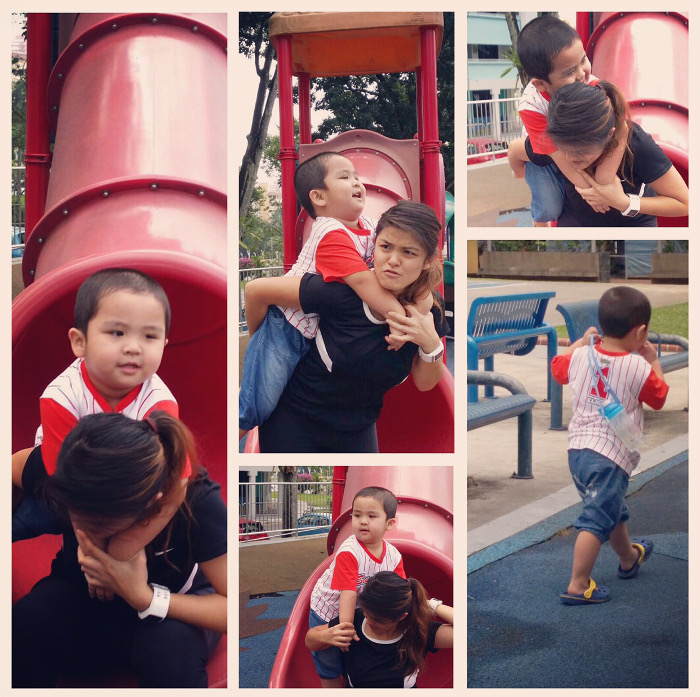
What would be your message to new mums or parents who are beginning their journey with their child with autism?
Please seek help if you need advice. Do not hide or be negative about your child with autism. They would definitely outgrow certain “traits” and we just need to continue to help them learn new skills and create more opportunities for them for their future.
Photos courtesy of Rilvia Len Sook Hui.
Sid Hamid is a Consultant Occupational Therapist and Founder & Director of Oxytoseen Pte. Ltd. He has more than 10 years of clinical experience as a consultant occupational therapist and is a transformational coach, author, speaker and trainer. He has dedicated his life’s work to unearthing the hidden potential of children with diagnosed or undiagnosed learning, behavioural and performance challenges.
This article was first published in The New Age Parents e-magazine.
* * * * *
Like what you see here? Get parenting tips and stories straight to your inbox! Join our mailing list here.
Want to be heard 👂 and seen 👀 by over 100,000 parents in Singapore? We can help! Leave your contact here and we’ll be in touch.













